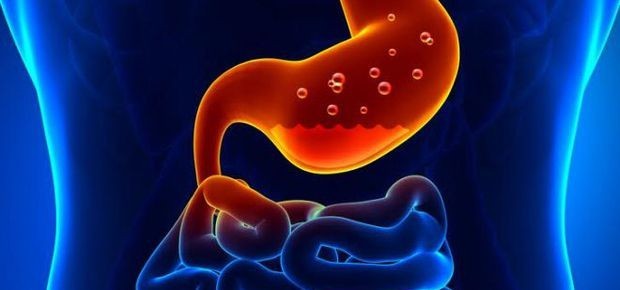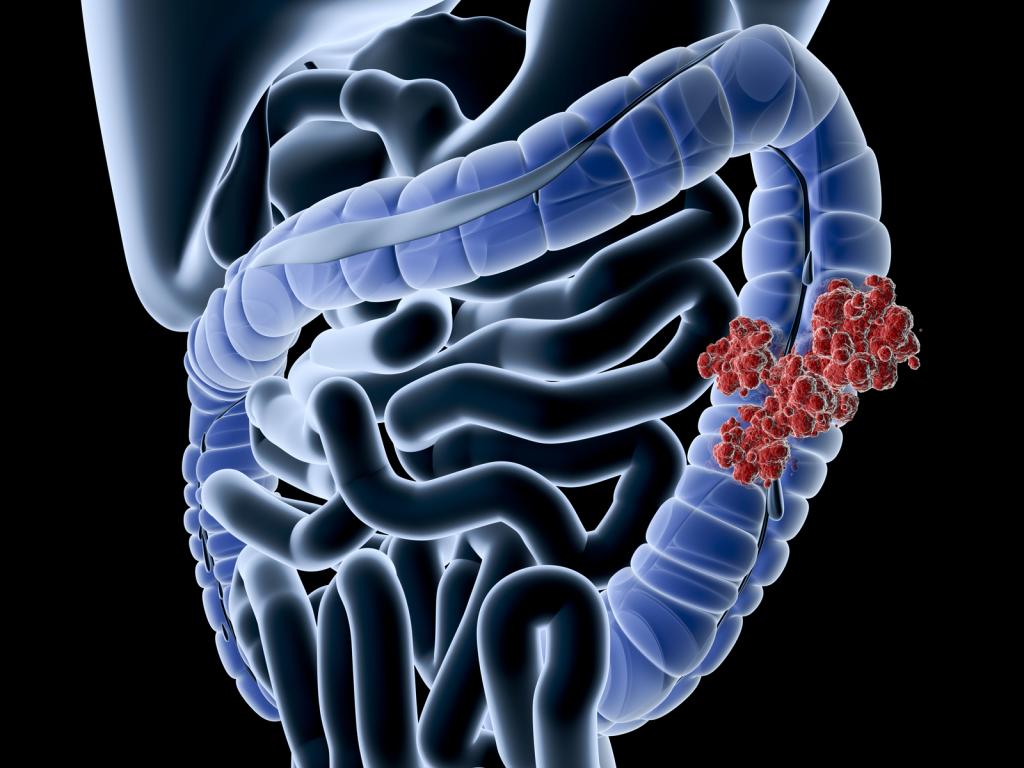
I'm talking about stomach acid! It's your first line of defence from all those outside nasties that we put inside our bodies along with the food that we eat. Let's not confuse the acid produced inside your stomach with the acid that's produced in the blood when it becomes overloaded with processed, sugar-laden and deep fried foods.
 We've all heard of acid being corrosive and that's exactly what it does to anything we ingest, including our food where it facilitates the complete breakdown of it into all its sub-nutrients, which build and fuel our body for it to work and maintain itself properly. If there's no or low stomach acid present, food essentially stays as an undigested mess, where it bloats the stomach until it forces its way through any exit valve available. The usual recipient and dump ground are the intestines, where it congests and can cause damage to the lining, penetrate directly into the blood or flush right out of the other end of the gut completely.
We've all heard of acid being corrosive and that's exactly what it does to anything we ingest, including our food where it facilitates the complete breakdown of it into all its sub-nutrients, which build and fuel our body for it to work and maintain itself properly. If there's no or low stomach acid present, food essentially stays as an undigested mess, where it bloats the stomach until it forces its way through any exit valve available. The usual recipient and dump ground are the intestines, where it congests and can cause damage to the lining, penetrate directly into the blood or flush right out of the other end of the gut completely.
So… when our digestive machine is churning out undigested food, not only is it devoid of any nutritional value, but it can cause a whole heap of problems in the body. Take allergies for example, these are reactions of the body's immune system mounting an attack against anything foreign that invades the blood, including unrecognised food complexes. Bacteria that should have been killed and toxins that would normally have been neutralised by the stomach's acidity now start to infect the intestines and gain entry to the blood, especially through the collaterally damaged lining (the so called ‘leaky gut' phenomena). We only have to look around us and we see a rise in allergies, IBS and a whole host of digestive complaints manifesting in society today.
Fact - most disease results from infection or deficiency - are you catching my drift?
So why is low stomach acid levels more an issue today than ever before?
 The stomach is actually only acidic when it needs to be - that is, when it's receiving food, otherwise it will self-corrode. If we're constantly eating… which let's face it, we're often nibbling on highly addictive, yet unsatisfying salty or sugary treats… then our acid supplies are repeatedly drained. The trigger that causes the stomach to make acid in the first place simply comes from thinking about food and when we chew. I'm pretty sure you're able to relate this idea to how we might salivate at the anticipation of eating a delicious meal or become famished very quickly when we chomp on a piece of gum.
The stomach is actually only acidic when it needs to be - that is, when it's receiving food, otherwise it will self-corrode. If we're constantly eating… which let's face it, we're often nibbling on highly addictive, yet unsatisfying salty or sugary treats… then our acid supplies are repeatedly drained. The trigger that causes the stomach to make acid in the first place simply comes from thinking about food and when we chew. I'm pretty sure you're able to relate this idea to how we might salivate at the anticipation of eating a delicious meal or become famished very quickly when we chomp on a piece of gum.
How many people do you know lead very hectic and stressful lifestyles and eat on the go without savouring or properly chewing on their food?
So how can you make more stomach acid naturally?
 The simplest way that you can kick start the production of your own stomach acid by being in a relaxed and mindful state prior to and whilst eating. That's to say, really taking the time to be conscious about what you're eating, enjoying each mouthful, its taste and flavour and how great it makes you feel as it satiates your appetite. Eating three wholesome meals a day and avoiding the need to snack regularly really is the best way to service your body's machinery.
The simplest way that you can kick start the production of your own stomach acid by being in a relaxed and mindful state prior to and whilst eating. That's to say, really taking the time to be conscious about what you're eating, enjoying each mouthful, its taste and flavour and how great it makes you feel as it satiates your appetite. Eating three wholesome meals a day and avoiding the need to snack regularly really is the best way to service your body's machinery.
Squeezing naturally occurring acids such as lemon or lime over your food or drinking a shot of concentrated raw apple cider vinegar before or during digestion can also assist in the process of getting your food broken right down to its really useful and absorbable components. There are also some inexpensive natural acid supplements on the market in the form of HCl capsules which can be purchased from many well-reputed health stores, a favourite supplier of mine is Biotics Research.
Final food for thought
Antacids are commonly taken to neutralise the stomach after its acidic contents have "fluxed" back up into the oesophagus and "burned" its lining (the heartburn sensation). Ironically, this situation occurs when the stomach isn't acidic enough in the first place to completely digest the food within, so it gets trapped in there for longer where it putrefies and expands, and is regurgitated back out through the incoming valve. Ask yourself: do these Antacids actually provide a solution and cure for this relatively common problem or are they being employed as a dependable and band aid relief strategy, lining the profit pockets of the pharmacological companies who sell them? With more incurable diseases on the rise than ever before, with no prevention strategies in sight, isn't it time we paid more attention to simple natural therapies? After all, our own body really is our finest doctor and there's no money to be made in publishing how it works! A is for Acid - now there's a good start to getting you on the right track to optimum wellness!










